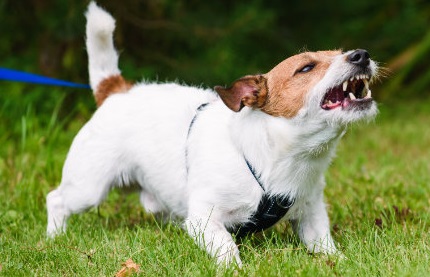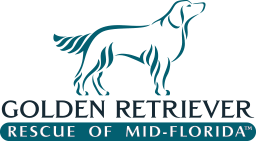He just growled - now what?

Growling is a valuable means of communication for a dog – something that dog owners should appreciate and respect rather than punish. Of course, we don’t want our dog to growl at us, but neither do we want him to fail to growl if something makes him uncomfortable; that’s very important information in a successful canine-human relationship.
It’s very common for dog owners to punish their dogs for growling. Unfortunately, this often suppresses the growl – eliminating his ability to warn us that he’s about to snap, literally and figuratively. On other occasions, punishing a growling, uncomfortable dog can induce him to escalate into full-on aggression.
So, if you’re not supposed to punish your dog for growling, what are you supposed to do? The next time your dog growls at you, try this:
1.) Stop! Whatever you’re doing, stop. If your dog’s growl threshold is near his bite threshold – that is, if there’s not much time between his growl and his bite, get safe. If his growl doesn’t mean a bite is imminent, stop what you’re doing but stay where you are. Wait until he relaxes, then move away, so you’re rewarding the relaxed behavior rather than the growl.
2.) Analyze the situation. What elicited the growl? Were you touching or grooming him? Restraining him? Making direct eye contact? Taking something away from him? Making him do something?
3.) Figure out a different way to accomplish your goal without eliciting a growl. Lure him rather than physically pushing or pulling him. Have someone else feed him treats while you touch, groom, or restrain him. If you don’t have to do whatever it was that elicited the growl, don’t – until you can convince him that it’s a good thing rather than a bad thing.
4.) Evaluate the stressors in your dog’s world and reduce or eliminate as many of them as possible. For example, if your dog is unaccustomed to strangers, then having your sister and her husband and three kids as houseguests for the past week would undoubtedly stress your dog. Noise-phobic dogs might be under a strain if city crews have been digging up a nearby street with heavy equipment or there was a thunderstorm last night. The vacuum cleaner is a common stressor for dogs. A loud argument between you and your spouse could stress your dog as well as you, and your stress is stressful to your dog. Harsh verbal or physical punishment, an outburst of aroused barking at the mail carrier, fence fighting with another dog. The list could go on and on.
Keep in mind that stress causes aggression, and stressors are cumulative; it’s not just the immediate stimulus that caused the growl, but a combination of all the stressors he’s experienced in the past few days. This explains why he may growl at you today when you do something, but he didn’t growl last week when you did the exact same thing. The more stressors you can remove overall, the less likely he is to growl the next time you do whatever it was that elicited the growl this time.
5.) Institute a behavior modification program to change his opinion about the thing that made him growl. One way to do this is to use counter-conditioning and desensitization to convince him the bad thing is a good thing.
If you need help to create and implement a behavior modification protocol, contact a qualified behavior professional who is experienced and successful in modifying aggressive behavior with positive, dog-friendly techniques.
by Pat Miller, CBCC-KA, CPDT-KA, Whole Dog Journal’s Training Editor and founder of Peaceable Paws
